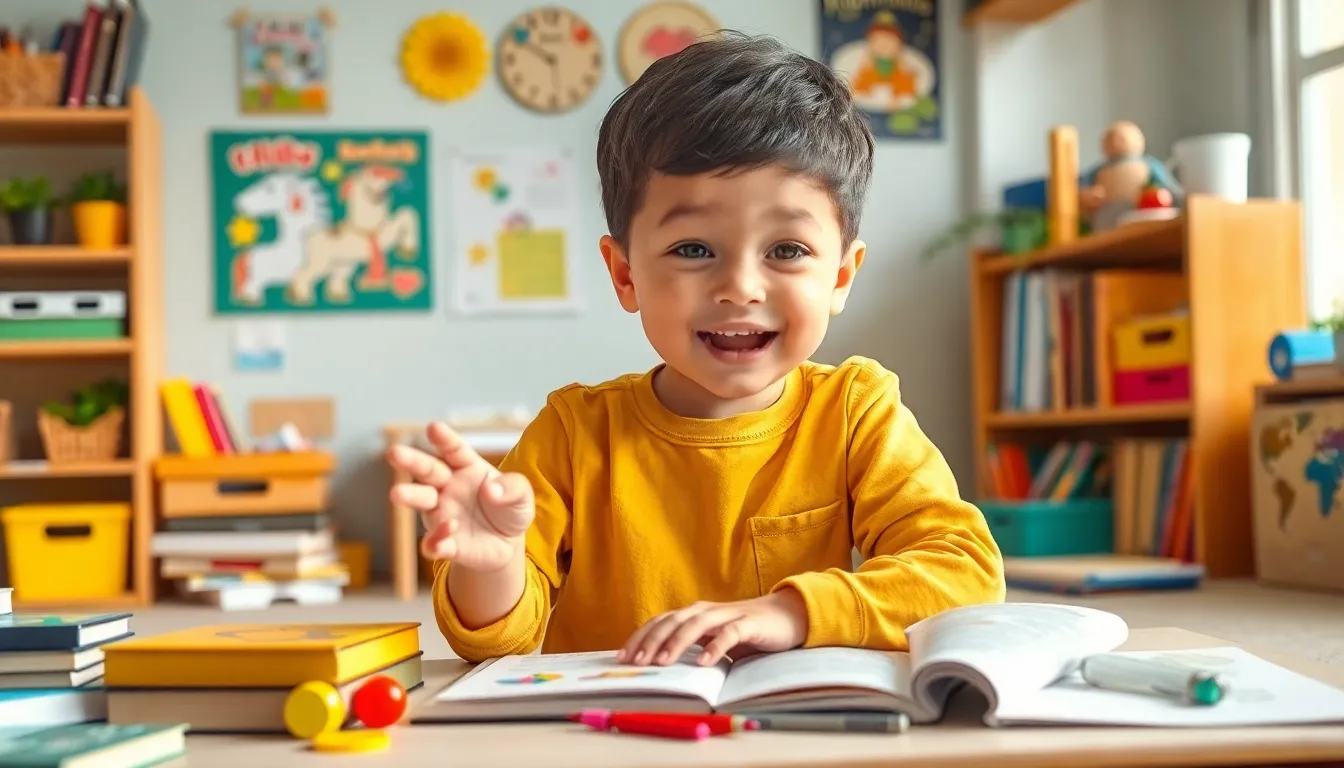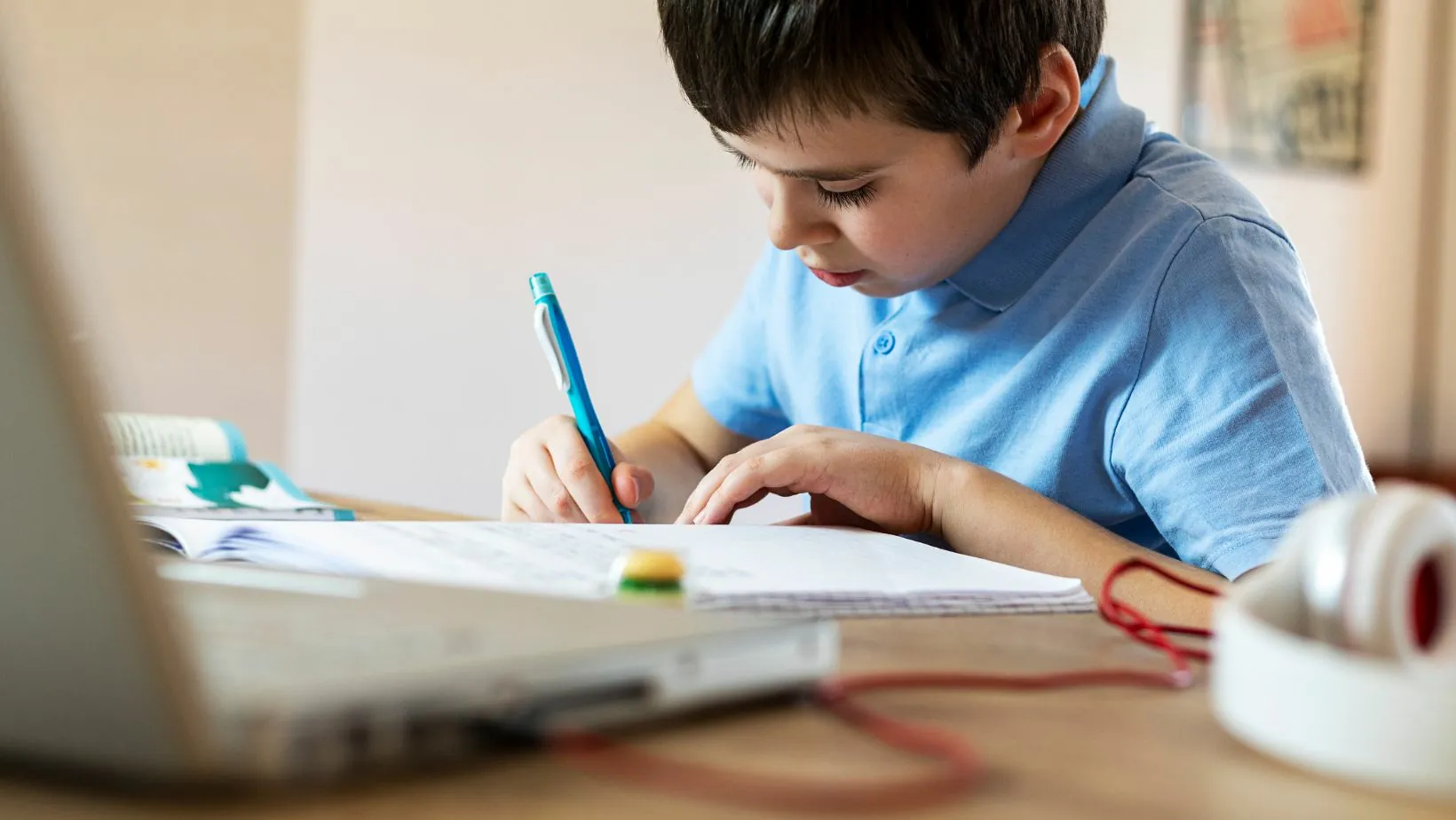In a world where cookie-cutter education often falls flat, personalized learning homeschooling emerges as the superhero every student didn’t know they needed. Imagine a classroom where lessons adapt to a child’s unique interests and learning pace, all while ditching the boring lectures and endless worksheets. Sounds like a dream, right? Well, it’s time to wake up and embrace a learning style that’s as customizable as a pizza order.
Table of Contents
ToggleWhat Is Personalized Learning Homeschooling?
Personalized learning homeschooling occurs when educational content is tailored to meet the unique needs of each child. This approach allows students to learn at their own pace, fostering better engagement and understanding. Specific learning goals guide instruction, enabling families to focus on areas of strength and improvement.
Flexibility characterizes personalized learning, offering the chance to integrate various subject matters based on a child’s interests. Incorporating different learning styles enhances comprehension, whether through visual aids, hands-on activities, or auditory resources. Children thrive when lessons connect to their real-life experiences, making education relevant and meaningful.
Parents play a crucial role in this educational model. They assess their child’s capabilities and interests, creating customized lesson plans. Regular evaluations help parents adjust strategies to ensure continued progress. This ongoing feedback loop encourages both the child and the parent to stay engaged in the learning process.
Technology often supports personalized learning homeschooling. Online resources and educational software provide diverse materials tailored to different learning styles and levels. Additionally, virtual tutoring options can offer personalized assistance when students encounter challenges.
Community resources supplement this method. Many families participate in co-ops, where they share teaching responsibilities and collaborate on projects. In this setting, children experience different teaching styles and perspectives, broadening their educational experience.
Overall, personalized learning homeschooling prioritizes individual growth and achievement. It redefines traditional education by creating an environment where each child’s unique journey is celebrated and nurtured.
Benefits of Personalized Learning Homeschooling

Personalized learning homeschooling provides significant advantages that enhance a child’s educational journey. This approach actively tailors the learning process to individual needs and interests.
Customized Learning Experiences
Engaging students in personalized learning experiences maximizes their educational outcomes. Lessons align with a child’s unique interests and strengths, making subjects come alive. Families can choose resources that resonate with their child’s learning style. Adjustments happen as necessary, keeping the child motivated. By integrating various subjects, parents can create thematic units that maintain interest and promote deeper understanding. This customization fosters a love for learning, allowing children to explore topics in depth.
Fostered Independence and Motivation
Encouraging independence emerges as a vital benefit of personalized learning homeschooling. Students feel empowered when they take charge of their education. It cultivates self-discipline as children set personal goals. Motivation increases when they see the direct impact of their efforts on their learning. This approach promotes critical thinking, helping kids to solve problems independently. With regular feedback, children understand their progress and areas for improvement, fueling their intrinsic motivation to succeed.
Challenges of Personalized Learning Homeschooling
Personalized learning homeschooling presents several challenges that families navigate on their educational journey. Parents face difficulties in several areas, including time management and resource availability.
Time Management
Time management emerges as a primary concern in personalized learning. Parents often juggle educational responsibilities alongside work and household duties. Creating structured schedules can prove challenging. Without a consistent routine, students may struggle to stay on task. It’s important for families to allocate specific time slots for subjects and activities. Establishing clear expectations helps maintain focus. Regular breaks can also enhance productivity by preventing burnout.
Resource Availability
Resource availability significantly impacts the effectiveness of personalized learning. Access to quality educational materials varies based on location and budget. Many families rely on local libraries, online resources, or educational platforms for diverse content. Limited access to physical resources, such as science labs or art supplies, may hinder hands-on experiences. Parents often need to research and curate materials tailored to their child’s interests. Collaboration with other homeschooling families can enrich the educational experience by sharing resources and insights.
Strategies for Effective Personalized Learning Homeschooling
Personalized learning homeschooling involves strategic approaches that adapt to individual student needs. Implementing effective strategies enhances learning outcomes.
Curriculum Selection
Selecting the right curriculum requires careful consideration of each child’s interests and learning preferences. Parents often evaluate various resources tailored to different subjects, ensuring that choices align with their child’s strengths. Incorporating diverse materials like books, online courses, and hands-on projects fosters engagement. For instance, integrating art into science lessons might pique a child’s curiosity. Curriculum should also allow flexibility, enabling adjustments as the child explores new areas. Engaging children in the decision-making process enhances ownership of their education, leading to more invested learners.
Assessment Methods
Employing varied assessment methods supports personalized learning by measuring individual progress accurately. Regular quizzes, projects, and discussions provide insight into a child’s understanding of subjects. Parents might also incorporate self-assessments, allowing students to reflect on their learning. Setting specific goals with measurable outcomes encourages accountability and motivation. Feedback should be constructive, highlighting strengths while identifying areas for improvement. Utilizing technology, such as educational apps, can facilitate tracking progress over time, offering a comprehensive view of each child’s journey. Consistent assessments ensure that strategies remain effective and aligned with a child’s evolving needs.
Personalized learning homeschooling offers a unique opportunity for children to thrive in an educational environment tailored specifically to their needs. By focusing on individual interests and learning styles parents can cultivate a love for learning that traditional methods often overlook. This approach not only promotes engagement but also fosters independence and critical thinking skills.
While challenges like time management and resource availability exist families can overcome these hurdles with creativity and collaboration. By leveraging technology and community resources parents can enhance their child’s educational experience. Ultimately personalized learning homeschooling empowers families to redefine education and celebrate each child’s unique journey toward success.




